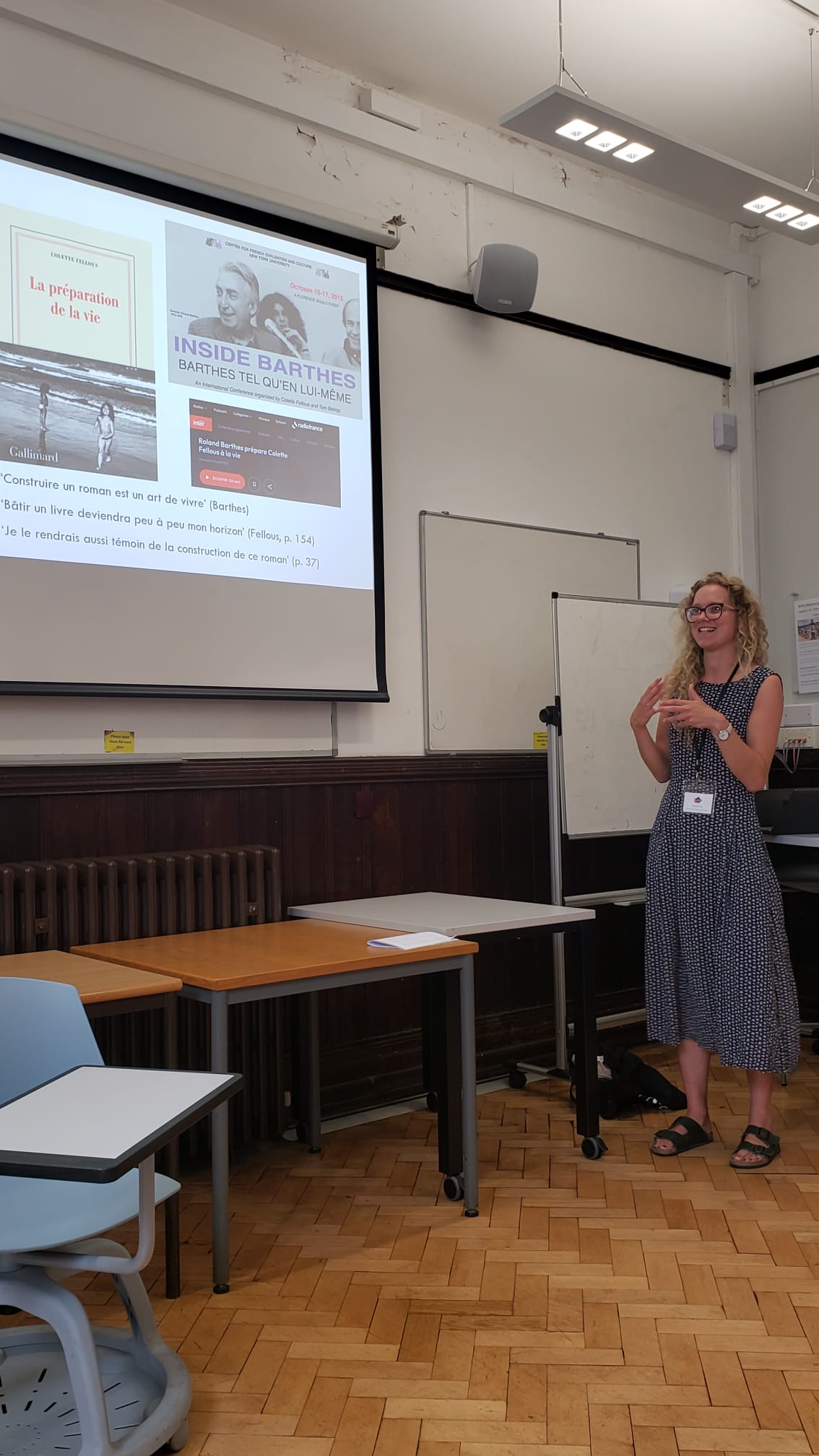Dr Vince presented a paper at the Society for French Studies 66th annual conference
Dr Rebekah Vince took part in a panel on ‘Bricolage as literary repair’ at the Society for French Studies 66th annual conference at the University of Bristol, 30 June-2 July 2025. Her paper was entitled ‘Re. Colette Fellous: bricoleuse of Barthes’ (abstract below). The panel was conceived by Joanne Brueton (ULIP) who spoke on ‘Patrick Chamoiseau’s sentimenthèque: Bricolage and the Canon’. It also included papers by Sura Qadiri (University of Cambridge) on ‘Enchanting Assemblages: The Patchwork Phototexts of Dora Latiri and Marie Ndiaye’ and Khalid Lyamlahy (University of Chicago) on ‘Philosophy, Translation, and Writing as Bricolage in Morocco: The Experience of Abdessalam Benabdelali’.
Published:
Here you can read a roundtable with Colette Fellous and her translator published in the bilingual, open access journal Francosphères, edited by Dr Rebekah Vince: Translating across worlds with Colette Fellous and Sophie Lewis.
Re. Colette Fellous: bricoleuse of Barthes
French-Tunisian Jewish author Colette Fellous’ novel La Préparation de la vie (2014) follows, in both senses of the term, Roland Barthes’ seminar series ‘la préparation du roman’ [‘the preparation of the novel’], in that it is a recounting of her experience of being one of his students and a continuation (or reharmonisation) of the theme pursued in this seminar series. Paradoxically, it is Barthes, famous for the so-called ‘death of the author’, who encouraged Fellous to write in the first-person, drawing from her own experiences. She translates this preparation into reparation not only of the roman but of life itself, (re)constituted out of what she calls ‘une mémoire aimantée’ [‘a magnetising memory’] alongside the ‘pièces détachées’ [‘loose parts’] of postcolonial Tunisia and France, among a plethora of other places. Not only is Fellous inspired by Barthes; she also reveals his postcolonial potential in her re-reading of his roman-in-the-making or making-of the roman in a Tunisian context. In this way, she transposes Barthes to a Mediterranean milieu of memory, as an accompaniment on her journey to and fro, between France and Tunisia, across time and space, post-Jasmine Revolution: ‘Il serait celui qui m’attendrait au bout de la route, au bout de ces pages […] pour essayer de raconter la métamorphose de la Tunisie depuis le 14 janvier 2011’ [‘he will be the one who waits for me at the end of the road, at the end of these pages… to try to give an account of the metamorphosis of Tunisia since 14 January 2011’]. The reparative act of (life-)writing or recounting is revealed in the prefix ‘re’, primarily in the verb revenir [‘come back’ or ‘return’], in relation to Tunisia, which re-emerges in the concluding lines of Pièces détachées: ‘j’y reviendrais toujours’ [‘I will always return’]. Yet it also proliferates in Fellous’ avowed intention or inclination in La Préparation de la vie: ‘J’écris pour […] réparer, rectifier, réajuster, recomposer’ [‘I write to repair, to rectify, to readjust, to recompose’]. Fellous’ writing therefore reconfigures exilic life(-writing) as constant movement, re-membering in a style reminiscent of improvised dance, as a bricoleuse of Barthes, since ‘[c]onstruire un roman est un art de vivre’ [‘to construct a novel is an art of living’].
